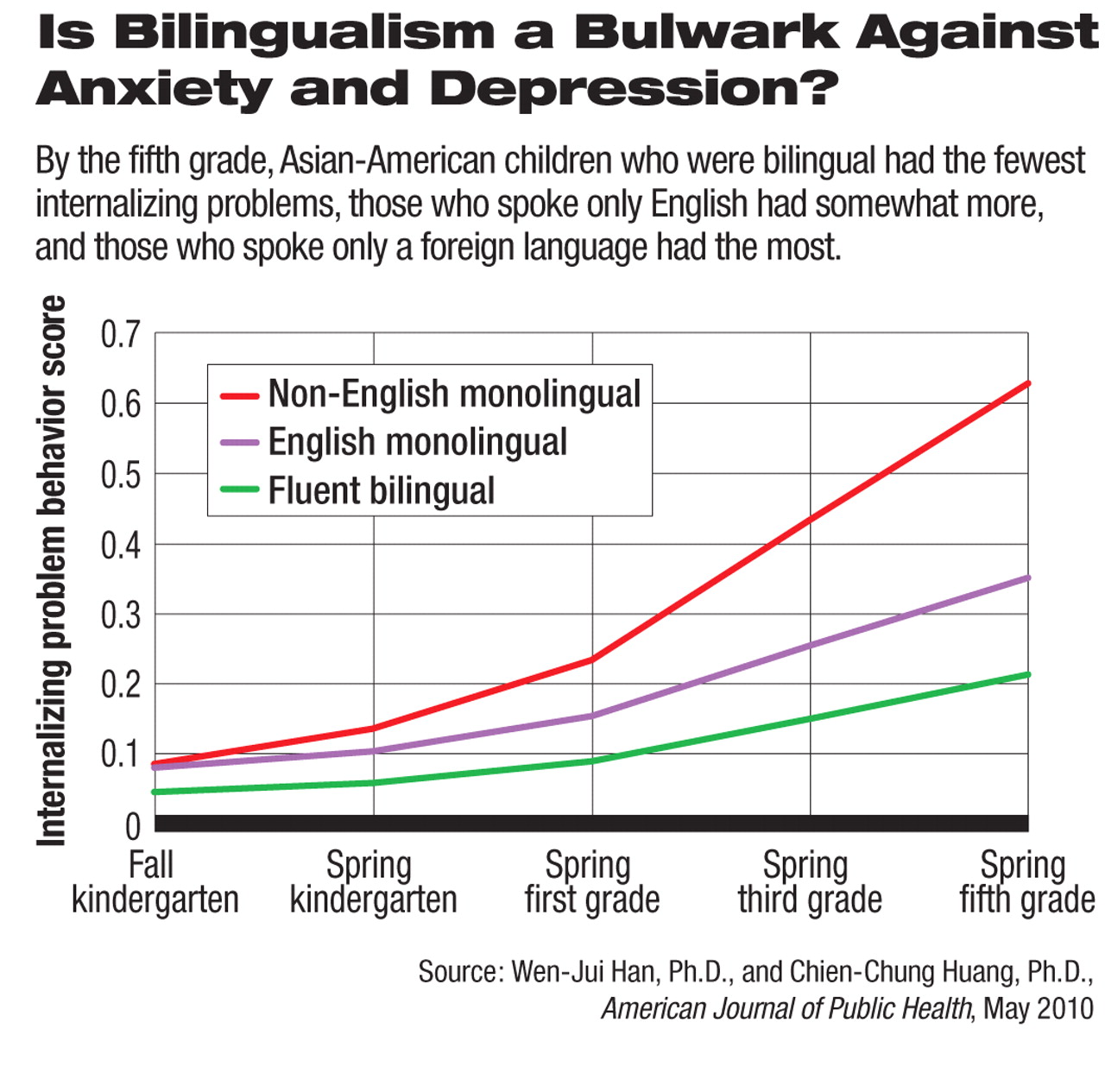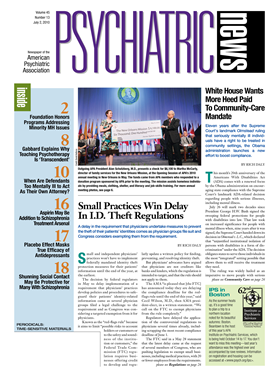Bilingualism can benefit children not only academically, but psychologically, research has shown.
Now it looks as if being bilingual can reduce internalizing and externalizing behaviors as well, at least in Asian-American children, a new study suggests.
The study was conducted by Wen-Jui Han, Ph.D., an associate professor at the Columbia University School of Social Work, and Chien-Chung Huang, Ph.D., an associate professor at the Rutgers University School of Social Work. Their results are published in the May American Journal of Public Health.
A nationally representative sample of 21,260 children who entered kindergarten in 1998-1999 were enrolled in the Early Childhood Longitudinal Study. The children's developmental trajectories were followed through the eighth grade. For instance, data about the children's internalizing problems (the apparent presence of anxiety, loneliness, low self-esteem, and sadness) and externalizing behaviors (the frequency of arguing, fighting, getting angry, acting impulsively, and disturbing ongoing activities) were gathered from their teachers during the follow-up years. Also, the language or languages that the youngsters spoke when they entered kindergarten were documented.
Han and Huang decided to tap information collected about a subset of subjects in this study—12,580—for their own investigation. Of these youngsters, 11,060 were American-born, non-Hispanic whites, and 1,520 had family roots in Asia. Of the 11,060 youngsters, 10,850 spoke English only, and 210 were bilingual, mostly in European languages such as French, German, or Italian. Of the 1,520 with Asian ancestry, 910 were bilingual, 380 spoke only English, and 230 spoke only a foreign language. Those who were bilingual or who spoke only a foreign language spoke Chinese, Filipino, Japanese, Korean, or a Southeast-Asian language.
Han and Huang investigated whether there were any links between being bilingual in kindergarten and later internalizing problems and externalizing behaviors, while considering several possibly confounding variables such as country of origin, socioeconomic status, size of family, school type and standards, and academic performance.
They found that such links did exist. Although all the children had a similar level of internalizing and externalizing problems at kindergarten entry, those who were bilingual had slower growth rates in such problems subsequently and a lower level of such problems by the fifth grade than did children who spoke English only.
So it looks as if being bilingual can reduce internalizing and externalizing problems in Asian-American children, Han and Huang concluded, and they proposed several explanations. “In addition to having no problems with English in the school environment, bilingual children receive extra benefits from the cultural resources in their families and ethnic communities. The ability to understand two cultures intimately is also likely to help children appreciate diversity and get along with peers and teachers,” they said.
The study also demonstrated that those children who spoke a foreign language and not English experienced even more internalizing and externalizing behaviors by the fifth grade than did English-only-speaking children. Han told Psychiatric News that he was surprised by this outcome. He had expected that not being fluent in English might hurt children's social and emotional well-being, but not to the extent that their study found.
The findings have practical implications, the researchers pointed out in their paper. “Parents should be encouraged to speak their native language with their children, [and] schools should be encouraged to nurture bilingualism, not just English....” But parents and schools should also make sure that children reared in a foreign language become fluent in English so that they can function well academically and not suffer psychologically because of their difficulty in communicating in English.
The study was funded by the Foundation for Child Development PK-3 Initiative and the Taiwan University Social Policy Research Center.

